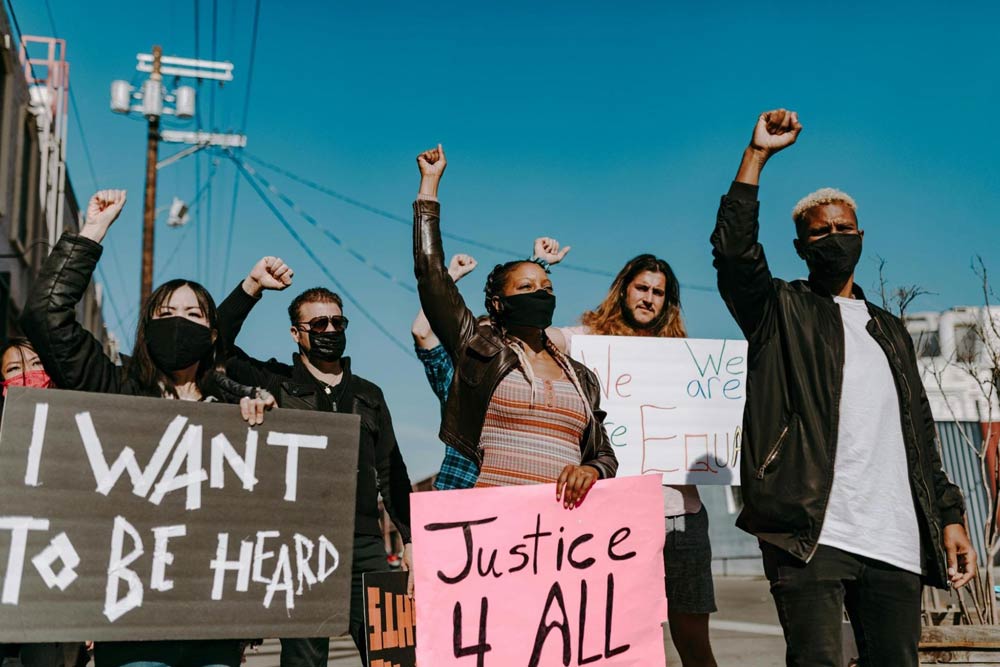Why Anti-Oppression Therapy Should Be Used in Eating Disorder Treatment
This approach centers the voices and experiences of those most impacted by oppression and works towards reducing harm caused by systemic injustice. It focuses on empowerment, social justice, and creating therapeutic spaces that affirm individuals’ identities, autonomy and lived realities. This is counter to the individualistic, patriarchal and racist origins of psychiatry and psychology.
In anti-oppression therapy, therapists adopt a relational and client-centered stance, engaging in reflective practice to continuously examine their own biases and the potential ways they may perpetuate harm. It seeks to restore agency and self-trust to clients by validating their experiences of systemic harm. This foundation of self trust fosters healthier relationships and ultimately, communities. The goal is to move beyond individualized frameworks to promote collective healing.
For example, anti-fatness—the systemic devaluation of fat bodies—is embedded in Western beauty standards and perpetuated through media, healthcare, and other institutions. For individuals living in larger bodies, treatment that does not address these external pressures can feel invalidating and incomplete.
2: Addressing Intersectionality: People of color, LGBTQIA+ individuals, disabled people, and those from low-income backgrounds are disproportionately impacted by eating disorders, yet they face significant barriers to receiving culturally competent care. Anti-oppression therapy centers these marginalized identities, offering a treatment approach that honors intersectionality—the understanding that different forms of oppression overlap and create unique experiences of marginalization.
For example, a Black woman navigating an eating disorder may experience not only the pressures of diet culture but also the additional burden of cultural stereotypes about Black women’s bodies, racial trauma, and gender-based violence. Anti-oppression therapy considers all of these layers in the healing process, recognizing that addressing only the eating disorder symptoms without acknowledging these intersecting oppressions falls short.
3: Restoring Autonomy and Agency: Traditional eating disorder treatment often emphasizes control—control over food, control over emotions, control over behaviors. While structure and guidance are necessary, many treatment models can unintentionally replicate oppressive dynamics by diminishing the client’s sense of autonomy. Anti-oppression therapy, particularly when paired with harm reduction, reframes treatment by focusing on restoring the client’s agency and ability to make informed choices about their recovery journey. A harm reduction approach, for example, does not demand immediate, absolute abstinence from disordered eating behaviors but instead works with clients to reduce harm at a pace that feels safe and manageable. This model respects the client’s knowledge of their body and life, fostering a sense of self-trust that may have been eroded by oppression. Harm reduction started in the streets and was later co-opted by public health- see the work of Shira Hassan in Saving Our Own Lives for more on this.
4: Creating Inclusive Therapeutic Spaces: An anti-oppression framework also requires that therapy itself becomes a safe and inclusive space for all clients, especially those from marginalized groups. This means actively rejecting oppressive narratives within the therapeutic space, creating room for clients to explore how racism, sexism, or ableism affect their relationship with food and body image. It also means therapists must engage in continuous education and self-reflection to ensure they are not reproducing harmful biases within the therapeutic relationship.
For instance, anti-fat bias can unconsciously seep into therapeutic work, even with the best intentions. An anti-oppression therapist would work diligently to recognize these biases and avoid pathologizing weight or food behaviors in ways that reinforce stigma or shame.
5: Long-Term Healing and Social Justice: Anti-oppression therapy recognizes that individual healing cannot be separated from collective liberation. Healing from eating disorders, in this framework, is not just about alleviating symptoms but also about reclaiming power in a world that often strips people of their sense of worth, control, and identity. As clients work toward personal recovery, they are also encouraged to understand and challenge the oppressive systems that contributed to their struggles in the first place. This approach empowers clients not only to heal but to become advocates for change, whether that’s through challenging beauty standards, advocating for fat acceptance, or working against racism and other forms of systemic injustice. In this way, anti-oppression therapy aligns with broader movements for social justice and equity.
6: Pushing back on Carceral Mental Health Care: An anti-carceral lens in Eating Disorder therapy recognizes that punitive, forced, coercive or rigid approaches can perpetuate shame, fear, loss of autonomy, and trauma–which worsen mental health symptoms and increase the risk of suicidality. By focusing on compassion, harm reduction, and collaboration, this lens emphasizes restoring agency and self-trust, allowing clients to engage in recovery without feeling controlled, threatended or punished. This can look like- utilizing non-police options for mental health crisis, not giving ultimatims to clients, and providing full, ongoing informed consent about the loss of autonomy, forced drugging and restraints that may happen if a client seeks treatment via hospitalization. Reccomeneded reading: Decarcerating Disability by Liat Ben-Moshe, A Profession Without Reason by Bruce Levine and Decolonizing Therapy by Jennifer Mullan.
By adopting this approach, therapists can provide more meaningful, inclusive, and empowering care—ultimately working toward a world where everyone can live free from the harmful effects of oppression.
If this resonates with you and you want to learn more, feel free to book an intro call with me to hear about our 1-1 therapy services, clinical supervision services and more!
Why Not Every OCD Subtype Requires Accepting Uncertainty: A Compassionate Look Through the Lens of I-CBT
If you’ve been struggling with intrusive thoughts like “What if I harm my child?” or “What if I’m secretly a pedophile?”, chances are you’ve felt terrified, ashamed, and misunderstood. These thoughts—often referred to as taboo OCD themes—can feel so disturbing that...
Understanding Health Anxiety: What it is & How to Cope
If you have health anxiety, you know how exhausting it can be to live with constant worry about your health. Every new ache, sensation, or symptom can send you into a spiral of anxiety, leaving you feeling overwhelmed and scared. Health anxiety (a subtype of OCD),...
Three Acceptance and Commitment Therapy (ACT) Skills to Strengthen Your Recovery from OCD and Eating Disorders
When I was in the depths of recovery from an Eating Disorder and OCD, I was hungry (I know, pun intended) for anything that would help me cope with the distress these disorders bring. Particularly when I was beginning to challenge some of the behaviors...




